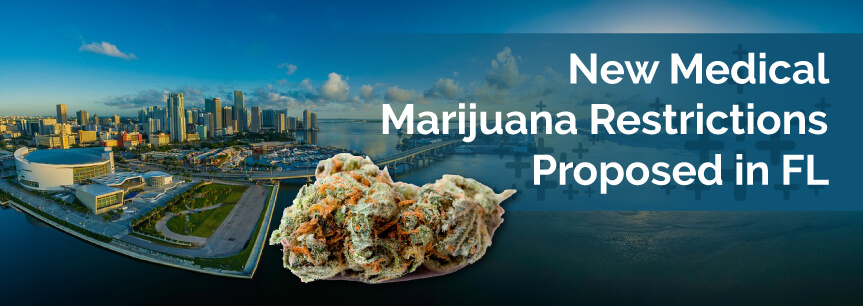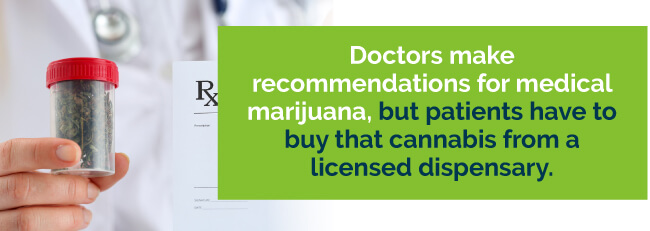
After voters approved the expansion of the medical marijuana program in Florida by a margin of 71%, a new House Bill threatens to severely limit that expansion. The proposed legislation, HB 1397, was sponsored by House Majority Leader Ray Rodrigues and approved by the House Health Quality Subcommittee. The bill moved to the Appropriations Committee after just three hours of public debate.
The medical marijuana program expansion that Florida voters approved, Amendment 2, was meant to increase access to treatment for more patients who could benefit from the unique healing properties of cannabis products. New regulations were needed to implement this expansion, but so far the regulations are working in the wrong direction.
The proposed rule seems to negate many of the provisions in Amendment 2 the voters approved. HB 1397 includes specific restrictions to the Florida medical marijuana laws, including:
If these rules go forward, Florida’s medical marijuana program would be moving backward. Instead of increasing access and availability to more patients who can benefit, medical cannabis would be more restricted than before.
Some of the provisions in HB 1397 would affect current medical cannabis users, and they would prevent new patients from becoming certified for marijuana treatment. In addition, the proposed rules would reward production and distribution organizations that are operating under the current laws while preventing other businesses from joining the industry.
Current marijuana laws specify a list of conditions that can be treated with medical marijuana. Amendment 2, which Florida voters favored, included expanding that list to other debilitating conditions that meet certain criteria as determined by the treating doctor. This proposed expansion of medical marijuana treatment would allow patients suffering from debilitating pain or anxiety who do not have a specific diagnosis to seek the treatment they need.
The proposed rule would require those decisions to be sent to the Florida Board of Medicine for a decision instead of allowing registered marijuana doctors to treat these patients at their discretion. Reducing the power of individual doctors to make treatment decisions and adding to the amount of time it takes for patients to become certified for medical marijuana presents limits to, not expansion of, access.

Being certified as a marijuana patient is just part of getting access to this life-changing treatment. Doctors make recommendations for medical marijuana, but patients have to buy that cannabis from a licensed dispensary. There are currently only seven companies in Florida licensed to dispense medical marijuana products.
With a proposed expansion in the number of patients who qualify for medical marijuana, the demand for those products will rise. To avoid limiting qualified patients’ access to the cannabis treatments they require, the supply of marijuana products would have to increase. Instead, the proposed bill would maintain the current number of distribution sites.
The number of patients who would become eligible for medical marijuana is estimated at around 500,000. Access to cannabis products for all those patients would be severely limited with only seven organizations dispensing marijuana. The result would be restricted access instead of expanded access to medical marijuana treatments.
Further limiting that access is the ban on certain marijuana products. Medical marijuana can be consumed in various ways — the most popular is probably smoking. Edibles are another popular form of consuming cannabis for those who prefer not to smoke, and vaping is the newest form rising in popularity.
Banning these popular forms of medical marijuana severely limits patients’ ability to consume the medical cannabis treatment that works for them. Medical marijuana is a treatment for serious conditions. Patients who use it rely on cannabis to live a normal life or, in some cases, just get through the day. For those patients currently relying on smoking marijuana every day, changing to another form of consumption would be a disruption of their healthcare routine.
HB 1397 needs to pass in two more subcommittees before it moves to the floor of the House for a full vote. In the meantime, other competing legislation is being discussed. Despite the clear mandate of the voters in Florida, lawmakers are divided on how to implement the provisions of Amendment 2.
Some opponents of the medical marijuana program in Florida are concerned with the latitude vague language in the regulations could allow. They fear giving doctors the ability to decide if a patient’s condition is near enough to those on the approved list to warrant medical marijuana treatment could open the door to abuse of the system.
Some lawmakers are uncomfortable with adding chronic pain to the list of approved conditions because they feel it is too vague. They obviously do not understand the source of the pain should not be a determining factor. Studies show chronic pain that is untreated causes additional health risks. Severe pain that cannot be relieved by any other means often responds well to cannabis treatment.
The other major consideration is how Florida manages the medical marijuana industry. For lawmakers, it is a fight between favoring a select few companies to produce, distribute and sell cannabis and having too many companies jump into the industry to properly regulate. There is still some concern that marijuana production and sales could attract bad actors to doing business in Florida.
Of course, more dispensaries around the state would improve access to current medical marijuana patients as well as help supply the expanding client base. Added competition might also help drive costs down, an important consideration for patients since insurance does not yet pay for medical marijuana treatment.
What is clear at this point is that Florida medical marijuana laws are changing rapidly. MarijuanaDoctors.com will keep you informed of the latest regulations to help you access the medical marijuana treatment that is right for you. One place to start is with our doctor search services to find a registered marijuana doctor near you.
No Information on MarijuanaDoctors.Com should be used to diagnose, treat, prevent or cure any disease or condition. You can view our Full Disclaimer here.